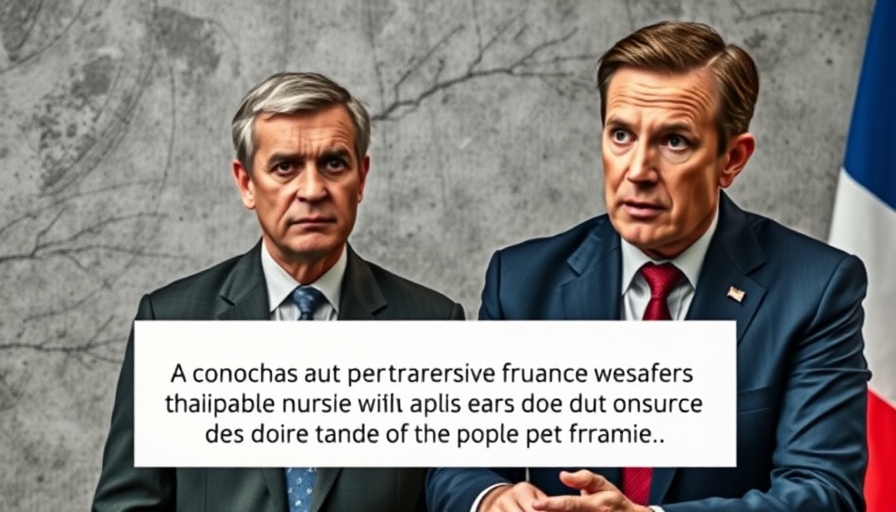
The Shocking Ban on Marine Le Pen: What You Need to Know
In a surprising turn of events, a French court has barred Marine Le Pen, a leading contender for the presidential election in 2027, from seeking public office for five years. This ruling raises disturbing questions about judicial power, democracy, and populist politics in France and beyond.
In France Is Banning Marine Le Pen From Running In The Next Election, the discussion dives into the complex implications of her recent judicial ruling, sparking deeper analysis about the state of democracy and judicial power in modern politics.
Understanding the Legal Proceedings
The French court convicted Le Pen of misusing European Union (EU) funds, imposing a suspended four-year prison sentence and the five-year ban. The judges found that several members of her party misappropriated millions intended to assist lawmakers in the European Parliament. Instead, the funds were allegedly diverted to pay staffers not directly involved in Parliament work—a detail that Le Pen and her supporters argue is a misunderstanding of their responsibilities.
Populism Under Siege?
This ruling comes at a time when right-leaning populist leaders face increasing challenges across the globe. From Donald Trump in the United States to Jair Bolsonaro in Brazil, judicial opposition appears to be a common thread aimed at disempowering populist politicians. Critics of the French ruling argue that it reflects a broader trend of judicial activists undermining electoral democracy, especially where populist candidates are concerned.
Is This Democracy in Action?
Supporters of Le Pen view the ruling as a deliberate attempt to weaken her party, arguing that it illustrates how unelected officials can manipulate judicial systems for political ends. The situation raises vital questions: Is this justice, or is it a concerted effort to silence dissenting voices in the political arena? Many across the political spectrum are concerned about the implications this judicial action has on democracy and the representation of voters' choices.
Comparisons Across Borders
Le Pen's situation is not isolated. Similar judicial actions have been documented in countries like Romania and Israel, aligning with the perception that populist leaders are being unfairly targeted. This denotes a potential peril for global democracies, suggesting that while the judicial framework should serve justice, it might also be employed as a tool by the political class against those who threaten the status quo. Such trends can drive a wedge between citizens and the institutions meant to uphold their choices.
The Role of the Judiciary
As citizens, the question ultimately arises: what role should the judiciary play in a democracy? Should unelected judges hold the power to decide the eligibility of elected officials? The balance between law and political privilege is delicate and often contentious. For many supporters of Le Pen and other populist figures, these rulings not only threaten the specific politicians but also undermine the broader principle of political fairness and democracy.
A Call to Action for Conservatives
For conservatives, the implications of Le Pen’s ban should galvanize discussions around protecting electoral processes and supporting candidates that resonate with the constituents’ values. Engaging in local and national dialogues about the role of populism in modern politics could foster a stronger understanding of these trends. It's essential to advocate for transparency and accountability within judicial branches to preserve the integrity of democratic institutions.
Ultimately, the ban on Marine Le Pen raises profound questions about our commitment to democracy and fairness. As we reflect on these developments, it's crucial to stay engaged in civic discussions and support political candidates who truly represent our collective vision for the future.
 Add Row
Add Row  Add
Add 




Write A Comment